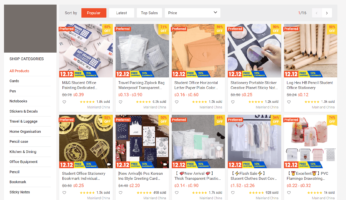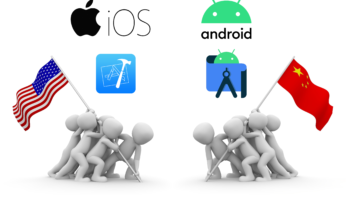
Does Your Business Need a Mobile App?
Sometimes, less is more. Building a business case around the need for a mobile app will avoid making an app that doesn’t solve any customer problems.
These days, it’s hard not to hear the word app. Mobile apps have become a mainstay of daily life across Asia, and local small businesses are looking to jump onto the mobile app bandwagon in order to promote a new dish or to keep customers informed of the latest news.
According to Forbes, Southeast Asia is one of the most engaged regions in the world with 129% mobile penetration, way above the global average of 115%, according to an early 2019 report. Given that the younger generation in Southeast Asia was first connected to the internet through mobile devices rather than laptops or desktops, businesses have had to consider a mobile-first approach when designing for these users in mind.
Mobile apps might seem to have the sizzle of going digital, but the abundance of apps on various app stores across different industries means that competition is strife for making your customers want to use and keep using your mobile app. Sometimes, it’s better to stick to a mobile responsive website rather than a mobile app. Here are 5 key questions to consider if you are planning to develop a mobile app for your business.
Read Also: Top 5 Hottest Mobile App Design Trends For 2021
1 – Is there a significant advantage (value proposition) with building an app over a mobile responsive website?
If the benefits of using your product or service are amplified through the use of a mobile app, then it might be good to consider it over a mobile responsive website. An example of this would be User Generated Content (UGC), whereby the content of the platform is customised for users. This customisation can be more easily done through a mobile app than a mobile responsive website.
2 – Who’s your target audience?
Different demographics have different problems and use cases. If your target audience is digital natives with an appetite for high-risk trading, then an app that helps them trade better might do the trick – in the case of RobinHood (https://robinhood.com/us/en/) this strategy served them well as their customer base is filled with young adults who are new to trading and are not used to the more traditional forms of trading from a desktop or a Bloomberg terminal. It will be important to define your user personas before diving into building an app so you know who you are building for.
3 – Can you integrate smartphone functions with an app?
It is much harder to integrate websites with smartphone features like Face ID, Camera, etc. so that could be a consideration to build an app. If you are integrating new technologies like Augmented Reality (AR) into your product / service, then it will be good to consider a native app that can bundle all the features that you are building into one powerful package.
4 – What is the Internet penetration / digital maturity of your industry?
Asia is a diverse place; different countries have vastly different rates of Internet adoption due to disparities in economic development and culture. There will be sectors that are more receptive to adopting mobile technologies than others, starting from consumer-based services. With this in mind, industries also move at different paces when it comes to technological adoption; shipping and oil are among the slowest moving industries when it comes to technological innovation so it might be prudent to first research the receptiveness of the industry to adopt your app before building it.
5 – What does your revenue model look like through the app?
An app is a different beast compared to a website. What is required to generate revenue through a website can be markedly different from an app even though the overarching strategy can be the same (monetisation through ad revenue).
Take Spotify for example; the app requires you to pay a monthly subscription fee in order to avoid being bombarded with long winded, repetitive ads after every other song and to have the autonomy to choose which songs you want to listen to on the go. If Spotify was hosted via a website, the revenue model would be slightly different, partially because you (as the user) can simply switch to another website like Youtube to listen to music if you are irritated enough.
Building Apps Can Be Time Consuming. Let Us Help.
Building a mobile app often requires more time than a website. In order to market your app successfully, your app has to be well designed and marketed effectively. At InterX Labs, we have extensive experience in helping our clients build Software-as-a-Service, Fintech and E-commerce products and we would love to get in touch with you if you have further questions. Do let us know in the comments section below or drop us an email at sales@interxlabs.com for more information.








